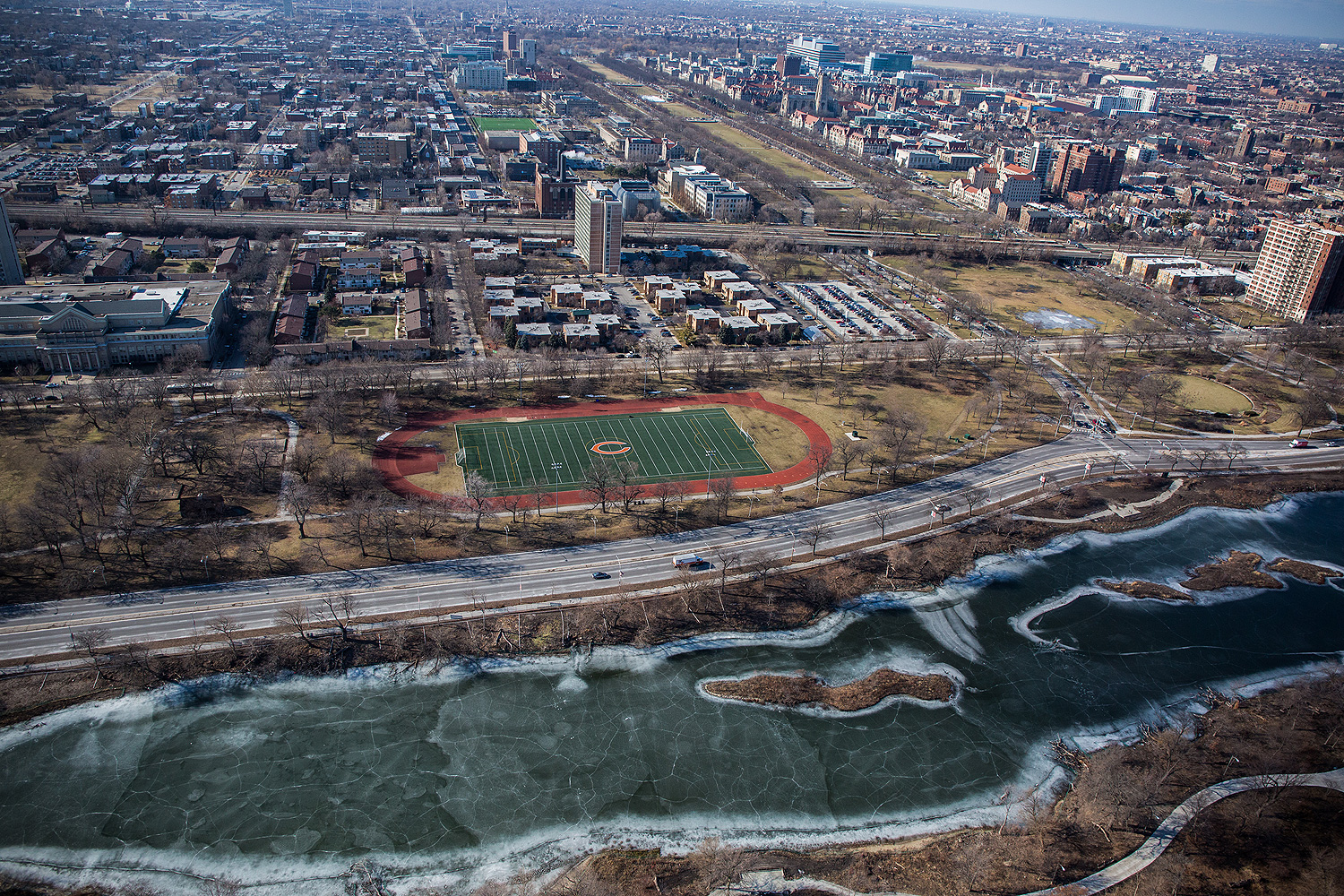News just broke that, after months of speculation and reporting, the Obama library team selected the proposed Jackson Park location, east of the University of Chicago along the lake, over the Washington Park location, west of the university and with better transit access.
After the prolonged fight over the Lucas Museum, it probably shouldn't be surprising that it's landing on, or at least near, Lake Michigan and close to a legendary museum. But two leaks from earlier this year are a little thumbnail story about why the course of empire doesn't always take its way westward.
Blair Kamin, "Washington Park Could Have Edge for Obama Library," February 12, 2016:
Citing Washington Park's "nitty-gritty" surroundings, including a nearby "L" stop, [well-connected architecture critic Paul] Goldberger said: "The Washington Park site is the more exciting possibility because it is the less conventionally 'presidential' site. Most of the people close to (Obama) feel the same way. But not all, so we'll see."
Greg Hinz, "Is Jackson Park Pulling Ahead in the Obama Library Race?," June 10, 2016:
But, I'm told, the Washington Park site may be a little too isolated and empty—some nearby blocks have only a few buildings remaining—to win the prize.
And scene. And… I told you so, last year:
My instinct was that it would go in Jackson Park, because people like to build monuments near water, and…that’s it. Simple and naive, but monument-building can be simple and naive, which is why lakefront activists are always having to fight off new monuments that could be built anywhere in one of America’s most physically vast cities.
[My colleague David Bernstein, whom I was debating with] thinks it’ll be in Washington Park. Obama got his start doing community building, and he’s signaled that he’ll continue with that after his presidency—so, he pointed out, Washington Park would be a good place to start building.
Not everyone in Washington Park was sold on the Obama Library and its predicted benefits. The sociologist Mary Patillo objected to taking city parkland when so many vacant lots lay all around it, and feared an increase in zero-tolerance policing that would be deleterious to the uses of Washington Park. U. of C.'s relationship to the surrounding neighborhoods is historically tense, resulting in skepticism from older residents.
But David was right. If one neighborhood really needed the development, it was Washington Park (not that economic development always follows the bulldozer, of course). In a data set compiled by VCU's Center on Society and Health, it had one of the lowest life expectancies of any neighborhood in a nationwide sample.
And it is comparatively empty, although "isolated" is a term of art; the Washington Park location would have been next to, possibly part of, the Garfield stop on the Green Line, whereas the only train stop at the Jackson Park location would be a re-opened 60th Street Metra stop on the underused Electric District line, though there is a stop three blocks to the south. (As Daniel Kay Hertz pointed out, one potential infrastructure benefit to the Jackson Park location could be making the Electric line more of a rapid-transit line.)
But the former community organizer-turned-politician chose the pragmatic choice, by the lake and by the Museum of Science and Industry. It builds on surrounding development rather than positioning itself as an anchor, just as self-memorializing titans have attempted to do since the city's first major museums were built. It's an incrementalist choice, as things so often are when it gets down to politics, and at least in that sense a fitting choice for a presidential library.



